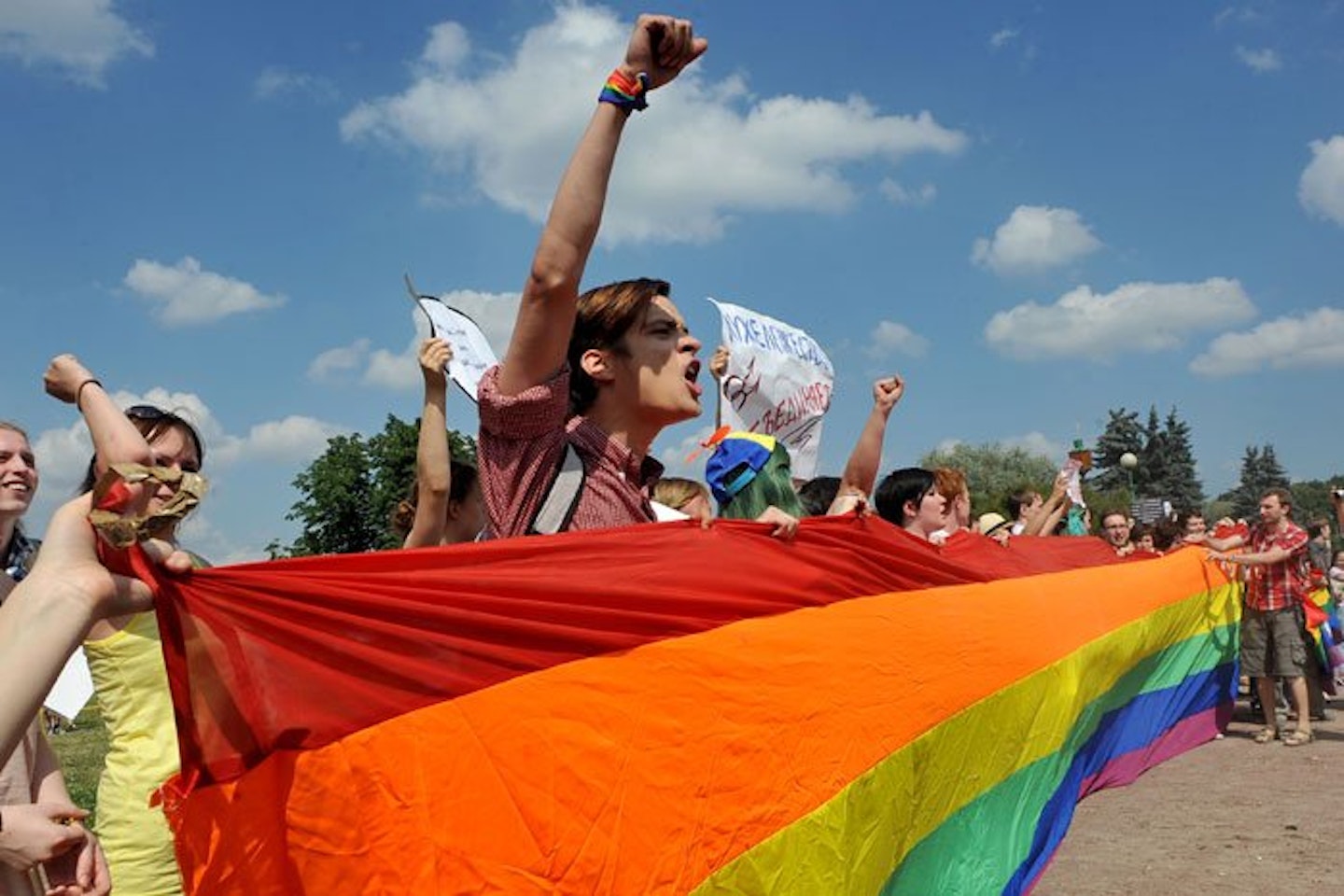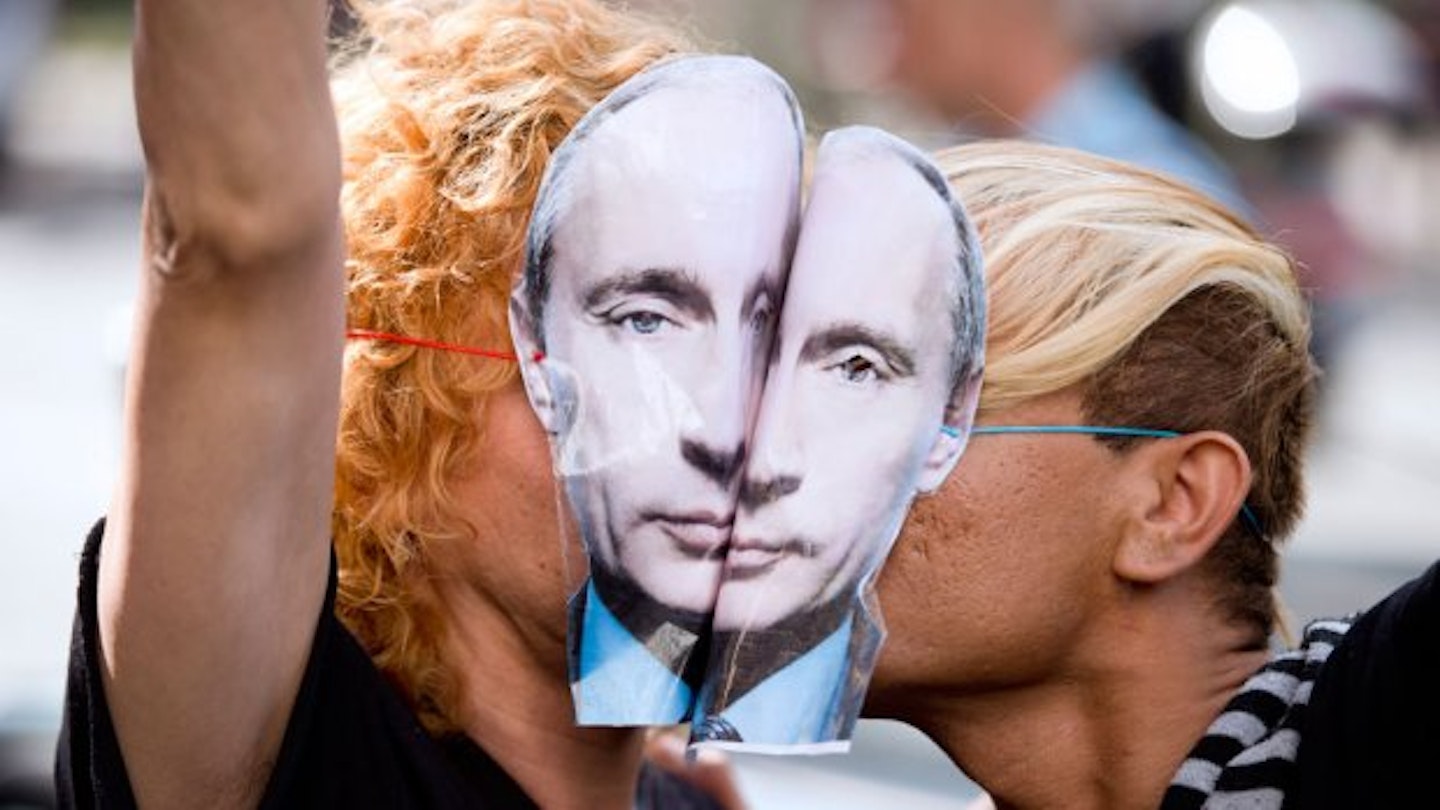If one topic dominated the 2014 Sochi Olympics more than any other, it was LGBT rights in Russia. Putin’s draconian anti-gay legislation (culminating in a law banning ‘propaganda of non-traditional relationships to minors’ – worded deliberately ambiguously to cover all manner of perceived ‘crimes’), led to calls from politicans and celebrities alike (hey, Stephen Fry) to boycott the Winter Olympics completely.
Yet, as far as many gay people in Russia were concerned, a boycott was the worst thing we could do – they wanted people to come and engage with the issue instead. ‘We felt [a boycott] would be dangerous for gay people in Russia, and we would face a backlash for it,’ Svetlana Zhakharova, 26, a LGBT activist based in St Petersburg, told The Debrief.
But did the strategy work? Did the discussion around LGBT rights in Russia make any difference on the ground? Not according to Moscow-based fellow activist Anastasia Smirnova. ‘The organisations I work with didn’t want a boycott because that essentially meant closing off any dialogue, when we wanted to engage with people. But in all honesty, now the Olympics is over, the strategy has failed. The Olympics proved to be an inefficient platform for discussing human rights,' she told us.
So now that the Olympics (and Paralympics) have finished, and those giant bear mascots have been sent to Putin’s dacha on the Black Sea (in all likelihood), and the international community has moved its gaze west to the Crimea, what’s next for the gay community in Russia?
‘Right now, no-one is thinking about us, the situation has moved on to Ukraine, so all that attention has moved away,’ explains Svetlana. ‘As soon as the Games were over, we invited representatives from the Moscow Duma [regional Parliament] to a round-table discussion of LGBT issues in Russia and no-one came. However, we had representatives from one political party and a representative from the church there – which was a definite first. Maybe this means they’re starting to accept that we’re part of the Moscow community. Or maybe it’s because we’re facing so much physical violence, which they don’t agree with.’
The threat of violence is ever-present for Russia’s gay community. The US Department of State Human Rights Report 2013 noted ‘a prevalence of skinhead anti-LGBT violence’, to which the police fail to respond, and last year’s LGBT pride events in Moscow and St Petersburg were marked with violence. Last May, a 23-year-old was brutally murdered in Volgograd, in what was believed to be an anti-LGBT hate crime within the context of rising national homophobia.
The gay propaganda law – which caught the attention of activists, politicans and celebrities around the world, who criticised the way it will ban any public statement – continues to be implemented for the most spurious reasons. ‘A magazine editor in Khabarovsk was fined because he published an article about a gay teacher who was fired because of his homosexuality,’ says Svetlana. ‘And then there was the case of Elena Klimova, a journalist who founded Children 404, a group for Russia’s LGBT teenagers.’ Klimova was charged with breaking the law and acquitted in the end, but it’s clear that the definition of gay propaganda in Russia is now a wide one.

Many fear that the propaganda law has only emboldened right-wing and anti gay groups – something Anastasia agrees with. ‘It definitely seems like [incidences of organised violence against the LGBT community] have grown. There are groups of young men who attempt to entrap gay men through online dating websites, then humiliate or use violence against them. The most frightening thing is that this is all in the open – there are videos of it online, available for anyone to see, and nothing has been done about it.’
Worse still, Anastasia believes, the propaganda law conflates gay people with child abuse in people’s minds. ‘It tells people that the LGBT community is dangerous for families, children and Russian society as a whole, by the mere fact of our existence. We are seen as second-class citizens who are openly and directly dangerous to children.’
But though the propaganda law caught the eye of the world, the Russian government has been looking to pass altogether more sinister legislation that would allow children to be taken away from gay parents. The bill was originally proposed in September, but was quietly put on the backburner in the face of widespread international condemnation – and the focus on the Winter Olmypics.
Activists like Svetlana fear that now the Sochi Games are over, the Russian government will revisit this. ‘The so-called law against propaganda has already had a profound negative impact on LGBT in Russia. However, this new law is a different phenomenon. It is one thing to say that there should not be propaganda of homosexuality against minors (how it is used now – it is mostly about public spaces). But it is a different thing to come to somebody’s family and remove their children.’ Anastasia adds: ‘I know several gay couples with children – either biological or adopted, and the second this law is sent to the Duma is the second they will actively consider making plans to leave the country.’
Despite this, Svetlana is positive for the future. ‘Before the Olympics, Russia’s LGBT community hoped that the support of the international community would help to draw public attention in Russia to the social and legal situation of LGBT. And such support really changed the situation. For example, the President of Russia, Vladimir Putin, personally made some statements about LGBT in Russia.
‘Of course, we don’t know what will happen next, but we are enormously grateful for all the support and all the letters we received, and all the demonstrations, which took place around the world.’
And although Anastasia says that the Olympics didn’t go as far as she’d have liked, she admits the international groundswell of support for the LGBT community was impressive. ‘The greatest impact was that it showed that the international LGBT movement is gaining strength. The scale and scope of international co-operation within the LGBT community was unprecedented.’
Follow Rebecca on Twitter @rebecca_hol
Pictures: Getty
This article originally appeared on The Debrief.
